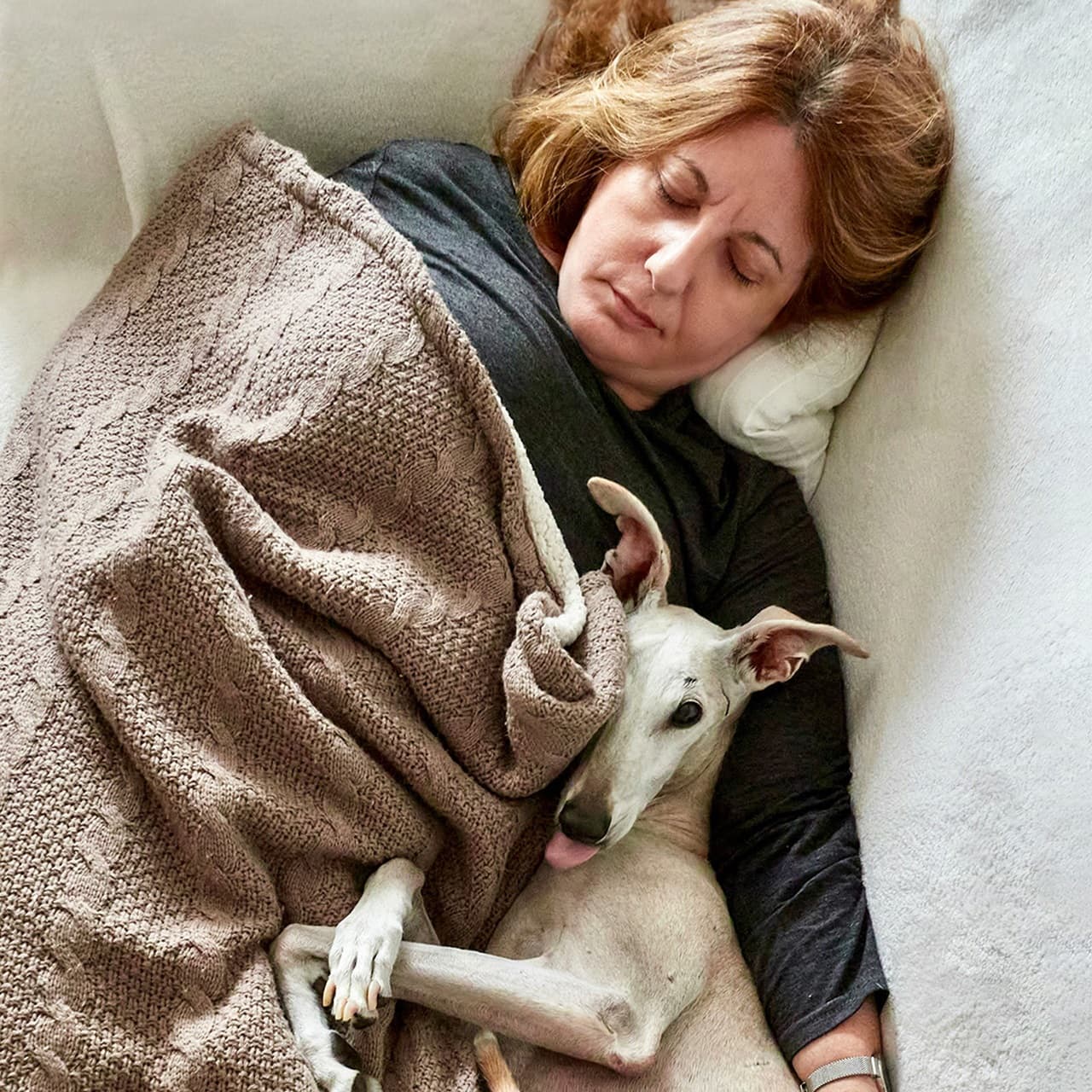When we think of sleep apnea, we often picture a middle-aged man snoring loudly in bed. But here’s the truth: after menopause, women are just as likely to have sleep apnea as men and it’s frequently missed.
As a sleep medicine physician and women’s health expert, I see this every week: women in midlife struggling with fatigue, insomnia, night sweats, and anxiety, often told “it’s just menopause.” But in many cases, there’s something deeper going on – obstructive sleep apnea (OSA) may be part of the picture, and it is often overlooked.
What Is Obstructive Sleep Apnea?
Obstructive sleep apnea is a condition where your airway collapses during sleep, causing you to stop breathing for brief periods, often dozens or hundreds of times a night. These episodes can cause fragmented sleep, oxygen dips, and a cascade of stress hormones that disrupt everything from mood to metabolism to memory.
Why It Ramps Up in Menopause
Before menopause, estrogen and progesterone help maintain muscle tone in the upper airway and stabilize breathing. But when these hormones decline, women become more vulnerable to airway collapse and apneic events.
Key shifts after menopause that increase sleep apnea risk:
- Loss of progesterone, a natural respiratory stimulant
- Weight gain and fat redistribution to the neck and torso
- Loss of estrogen causes night sweats and contributes to airway collapse in sleep
- Sleep architecture changes, leading to more light sleep and awakenings
- Increased inflammation and autonomic nervous system disruption
Studies show that the prevalence of sleep apnea in postmenopausal women increases two to threefold, yet it remains widely underdiagnosed.
Why Women Are Often Misdiagnosed
Sleep apnea symptoms in women can look very different than those in men. While men report loud snoring and gasping, women more commonly experience:
- Insomnia or fragmented sleep
- Fatigue and low energy
- Mood swings, depression, or anxiety
- Morning headaches
- Brain fog or memory issues
These symptoms are often chalked up to “just menopause,” leading to missed diagnoses and delayed care.
Sleep Apnea Is a Whole-Body Disruptor
Left untreated, sleep apnea raises the risk for:
- Hypertension
- Type 2 diabetes
- Depression and anxiety
- Cardiovascular disease
- Cognitive decline and dementia
And in the menopausal transition, when your body is already undergoing hormonal and metabolic shifts, untreated sleep apnea accelerates the decline, impacting your quality of life, relationships, and long-term health.
What You Can Do
If you’re in midlife and experiencing unrefreshing sleep, daytime sleepiness, or mood and memory changes, get evaluated for sleep apnea.
Modern diagnostics, including sleep apnea testing, make it easier than ever to get clarity.
Treatment options go far beyond traditional CPAP machines. Depending on your case, therapy might include:
- CPAP or APAP therapy
- Positional therapy
- Oral appliance therapy
- Hormone replacement therapy (HRT)
- Weight and lifestyle optimization
- Cognitive behavioral therapy for insomnia
If you’re a woman in perimenopause or postmenopause struggling with your sleep, don’t settle for vague reassurance or one-size-fits-all solutions. Sleep apnea may be a hidden contributor, and treating it could transform your sleep, energy, and entire outlook on life.
You deserve real answers and evidence-based care.













